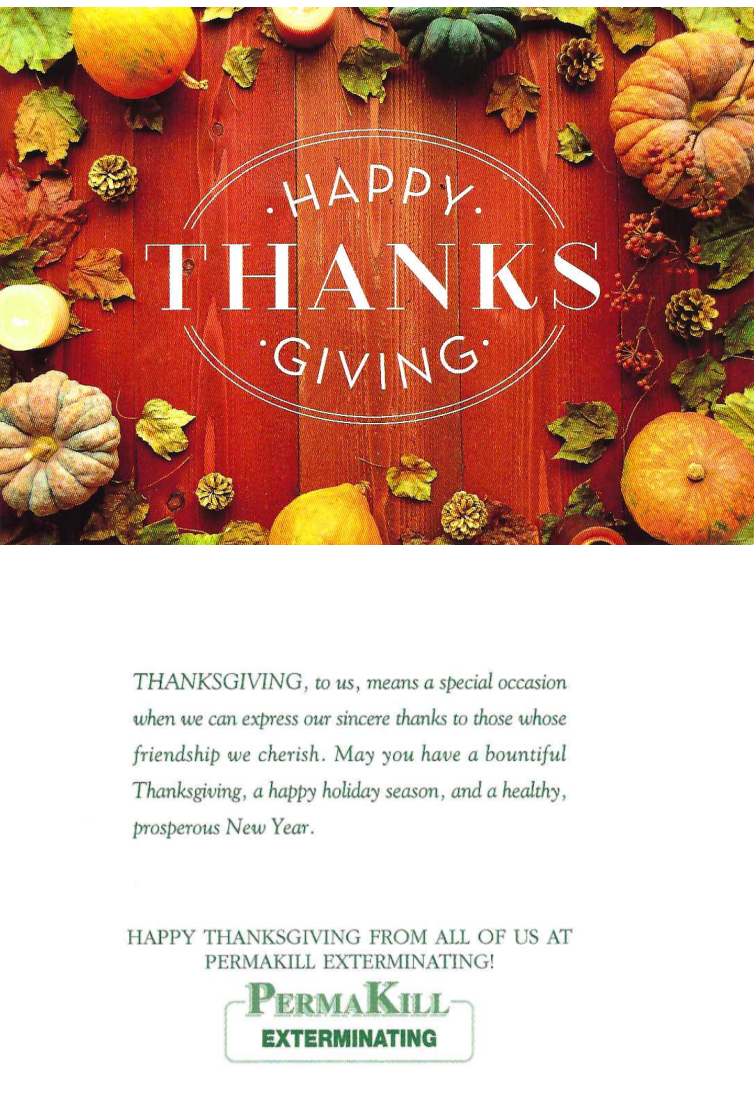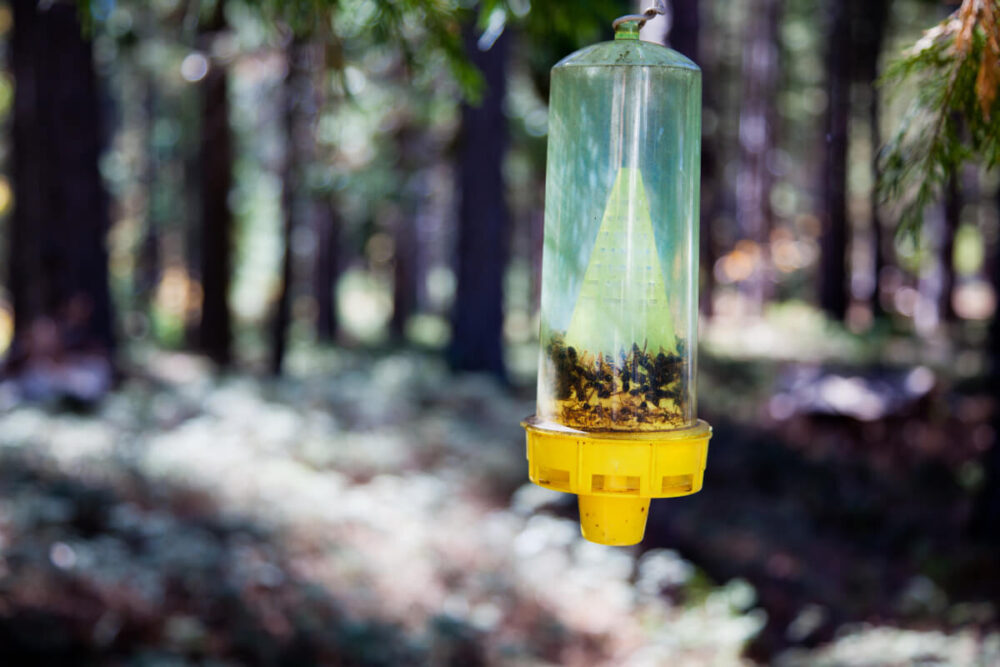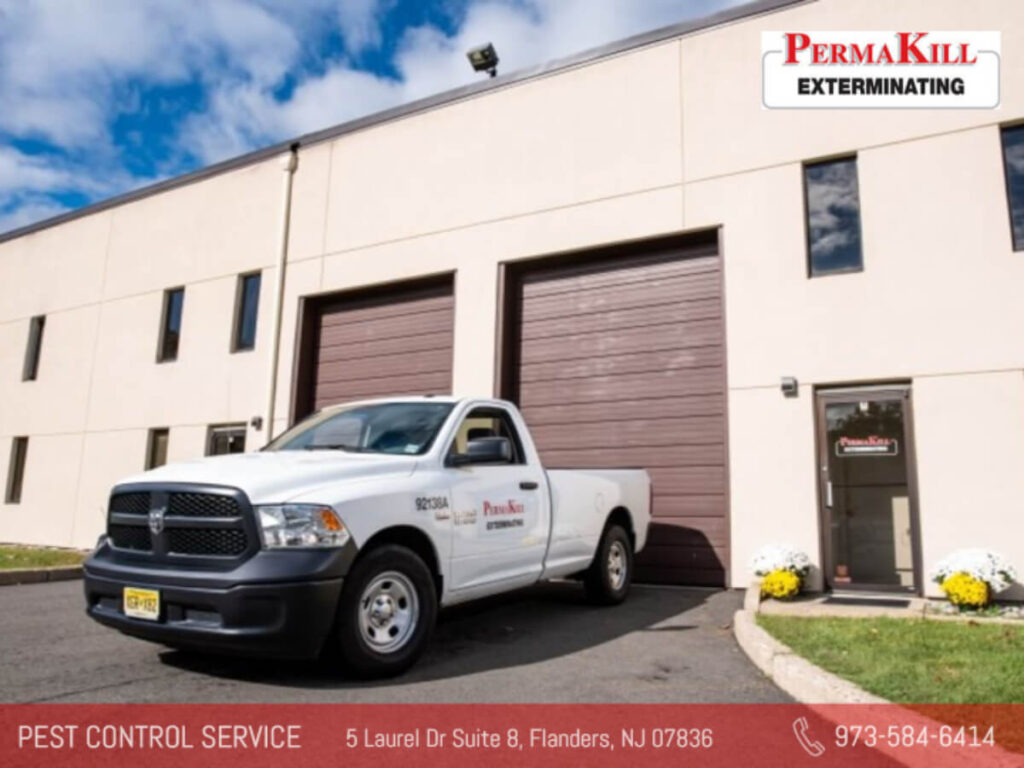


Wasps in the garden aren't ideal for gardeners, beekeepers, or anybody who enjoys being outside. The most apparent disadvantage is painful stings, but wasps may also represent a serious danger to bees and colonies, and they've been increasing in population all over North America. Many wasp species will assault hives, consume eggs and larvae, kill bees, and steal honey. You'll want to do all you can to keep an active wasp nest away if you're a beekeeper.
How do you get rid of hornets without harming honey bees? There is no one-size-fits-all solution for keeping wasps out of your yard or getting rid of them after they've settled in, but there are a few things you can try. Yellowjackets are a pest in the garden and at home and may be captured in a variety of traps using baits that aren't attractive to bees or other wasps. They are scavengers who will eat anything, including your waste and the food your dogs eat.
Preventing a wasp infestation is usually preferable to dealing with them once they have a nest within your property. You're less likely to have a problem if you make your house or yard unappealing to wasps. Plants with smells that naturally repel wasps, such as citronella, eucalyptus, mint, and wormwood, are effective deterrents and can be a long-term solution for wasp troubles, and a great alternative to insect sprays.
It's also vital to keep an eye on food sources in the garden, since wasps are attracted to specific items, such as sweet drinks, fruit juice, sugary drinks, and meats. Keep pet food indoors if possible, don't leave food lying about, and keep your garbage and compost piles firmly sealed.
If you have fruit trees in your yard, pick fallen fruit as soon as possible to prevent it from rotting as they pose a great attractiveness to insects, which wasps hunt. Although fake wasp nests may seem unlikely to work, wasps are territorial, and a fake nest can be very successful at keeping wasps away. Make your own nest out of crumpled paper bags tied together with a thread, or purchase one.
Yellowjacket foragers are on the lookout for protein and carbohydrates to feed their growing larvae and they're attracted to adult bees and colonies because they provide an abundance of both of these items. Good beekeeping techniques, such as fostering strong colonies, limiting hive entrances, erecting protective screens, and maintaining a neat apiary, help protect honey bees against nearby wasps.
Unlike most other wasps, which make aerial wasp nests out of chewed wood fibers, yellowjackets build their nests in holes in the ground. The bald-faced hornet, the Asian wasp, and the European paper wasp, for example, may defend their nests if they are threatened, but they are not aggressive otherwise.
Paper wasp nests can be found in trees and shrubs, as well as in the rafters and on the walls of your house. Paper wasps are pollinators and hunt on unwanted native insects, so ensure that you do not have a cluster of insects or pest insects in your backyard to avoid a wasp infestation.
Yellowjackets can also be controlled with a homemade trap. To prepare one, combine a bit of dish soap and a bowl of water and place them in the target area. A tiny piece of meat or fish should be tied to a short piece of thread, which should then be hung half an inch above the solution. Yellowjackets fly erratically and die if they come into contact with this simple mix of warm water and a few drops of dish soap.
Removing a nest is dangerous, so make sure you've dressed appropriately, with a veil and mask. Approach the nest early in the morning or late at night, when the wasps should be less active, then spray the nest with pesticide. To prevent getting stung, keep a safe distance, and if you can't use pesticides for whatever reason, spray the nest and any wandering wasps with a combination of detergent and water in a spray bottle.
This will dry on the wasps' wings, weighing them down and preventing them from feeding. If you come upon an underground or inaccessible nest, fill it with soapy water or pesticide, then cover the entrances with stones or dirt. Although you may not be able to completely eliminate wasps from your yard, these short-term solutions should help protect your bees and beehives of honey.
Yellowjackets lay their eggs on the earth. Locating and destroying nests will aid in reducing their population. Yellowjackets will also only forage up to 1,000 feet from their nests, so the ones in your garden might have come from somewhere else completely. If you see solitary wasps, don't be afraid as they are less likely to attack you even when provoked, but this should be an indicator of a wasp nest nearby.
Adult wasps are opportunistic, preferring smaller European honey bees and colonies that have been weakened by mites, sickness, or famine. Strong honey bee colonies will have a large number of guard bees to fight off a giant hornet attack, thus beekeepers should keep their colonies healthy and merge weak hives into strong colonies before they become susceptible.
Control Varroa mites, as well as other pests and illnesses under control to keep colonies healthy, and ensure that honey bee colonies have enough food and water. When required, feed the bees carbohydrates like sugar syrup and proteins, but be sure to wipe up any spilled syrup or patty leftovers.
Physical access to colonies is also vital in aiding bees in their fight against parasitic wasps. Woodware should be kept in excellent condition, with no gaps between the boxes. Smaller entrances lower the amount of space guard bees must protect. If you need to close up entrances because the weather is hot, use mesh screens to keep intruders out while still allowing enough air for the bee swarms.

PermaKill Exterminating’s team of invasive species exterminators carefully examines the extent of damage and infestation before recommending the best treatment plan and professional service for your property.
PermaKill Exterminating is the best professional pest control company. We have the right tools, methods, and techniques to prevent and stop all kinds of pests and native insects from invading and taking over your space. PermaKill Exterminating has a slew of other services to free your home from insect populations. Contact PermaKill Exterminating today to receive a free quote on the cost of wasp treatment from a wasp expert.
Call us now at (973) 584 – 6414 to let us help you with your pest problems.